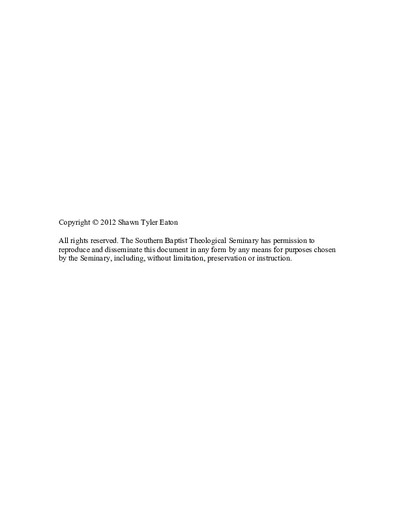Haydn's Creation as a Musical Response to the Enlightenment
Abstract
Important tenets of Enlightenment thought, specifically natural theology and philosophical naturalism, mark both the libretto and certain aspects of the music of Haydn's Creation. The opening chapters of the dissertation establish the philosophical, historical, literary, and musical milieu as shaped by leading thinkers of the period. Influences of important precursors are discussed, including Milton's Paradise Lost and earlier "creation" oratorios.
The libretto of Creation, through its revisionist treatment of the biblical account of creation, reflects a shift from the orthodox Christian, apologetic perspective of Handelian oratorio toward a deistic representation of biblical truth. Paralleling this shift away from theological orthodoxy is The Creation's departure from the contrapuntal textures of Baroque oratorio--associated by James Webster and Hermann Danuser with the element of the musical "sublime"--to a pluralistic musical palette including elements from secular genres such as opera and symphony. These parallel shifts move the work toward naturalism. The Creation's ultimate message is one of Enlightenment optimism produced by the oratorio's religious tolerance--demonstrated by the omission of the Fall narrative--and musical eclecticism.
Musical inclusivity is conveyed by a mixture of styles and conventions that cross normative standards for setting sacred texts. The analysis of text-music relationships in Creation builds on theoretical constructs of Danuser and Kramer, focusing on smaller- to larger-level musical sections that demonstrate the contrast in style and values represented by the sublime and idyllic. Both texts and music of The Creation elevate values of naturalism while simultaneously "rescinding" the sublime element into the beautiful or "idyllic." Concluding chapters focus on reception history of The Creation in both Austria and England, Haydn's two target audiences for the work.

